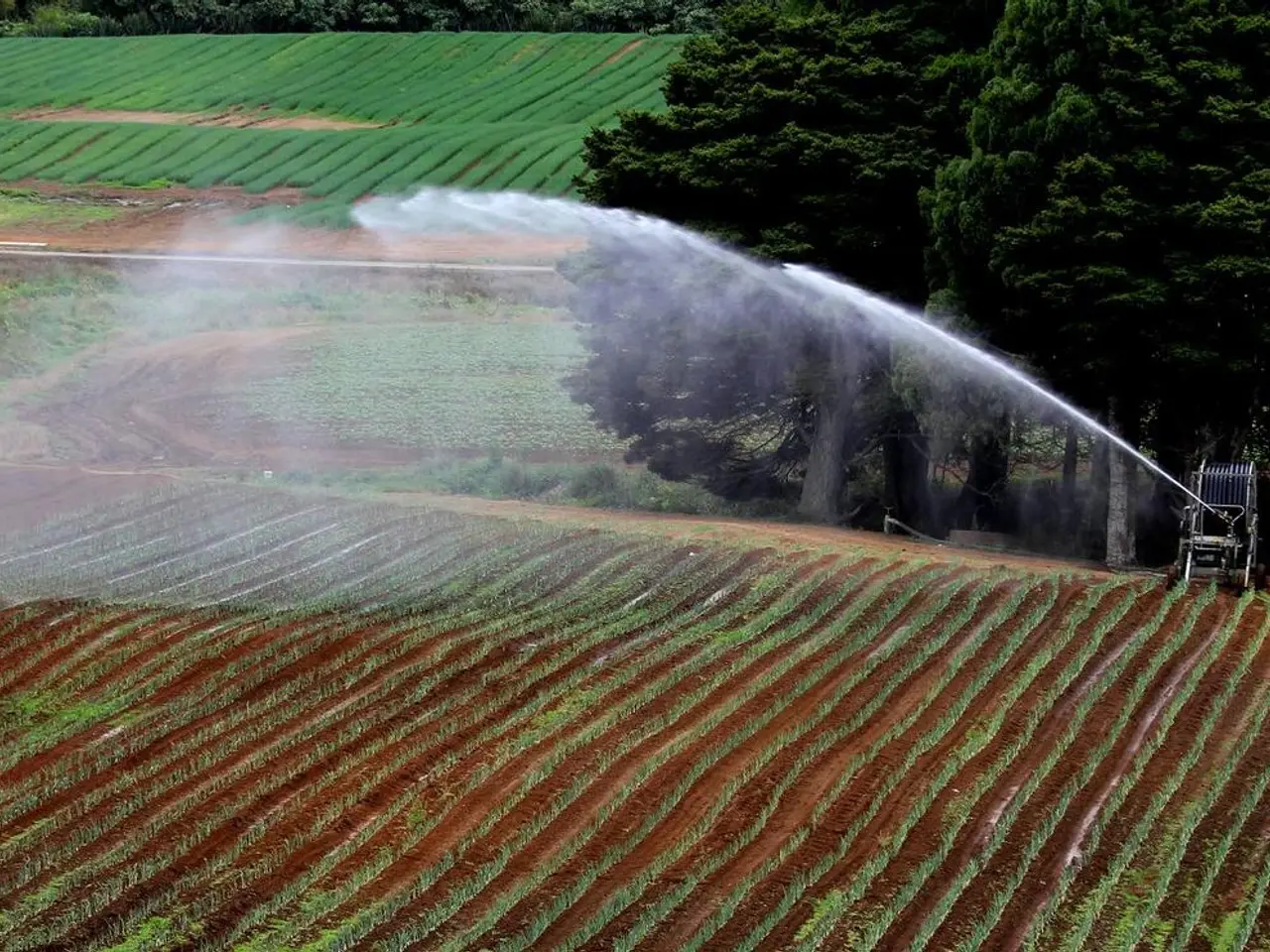Future agricultural prosperity in Africa relies on transportation and distribution of produce, not just cultivation alone
In the heart of Africa, a technological revolution is underway, aiming to transform the continent's agriculture sector. Haul247, a technology-driven logistics and warehousing platform, is at the forefront of this change, striving to streamline supply chain operations across the region.
Sehinde Afolayan, the CEO and Co-founder of Haul247, is spearheading this initiative. The platform connects shippers and truckers, improving efficiency and transparency in the transportation sector. This digital approach has resulted in quicker, safer, and more cost-effective cargo movement, revolutionizing freight logistics in Africa.
The importance of such digital tools cannot be overstated. More than half of Sub-Saharan Africa's agricultural losses occur in the "first and middle mile," a critical phase in the supply chain. By addressing these logistics issues, Haul247 aims to reduce post-harvest losses, a problem that currently costs over $4 billion each year.
The potential benefits are substantial. Even a 1% cut in post-harvest losses could yield $40 million annually, directly benefiting smallholder farmers by boosting incomes, lowering food prices, and opening trade opportunities. These farmers, who produce up to 80% of the food consumed locally in sub-Saharan Africa, stand to gain the most from these improvements.
However, the road to transformation is not without challenges. Logistics operations in African markets face issues such as seasonal flooding, rural road conditions, varied vehicle types, and urban congestion. To overcome these hurdles, route optimisation models that incorporate these variables are critical to ensuring reliability in supply chains.
Scaling this logistics transformation across Africa requires a coordinated effort. Building connected, tech-driven ecosystems supported by investment from governments, donors, and the private sector is essential. Regulatory harmonisation under AfCFTA is key to unlocking regional trade and food security in Africa.
Moreover, closing the digital divide and expanding broadband in rural areas is crucial for the growth of digital logistics platforms like Haul247. Predictive analytics, which enables logistics providers to anticipate demand by analysing order flows, harvest cycles, and weather forecasts, can only be effectively utilised with robust digital infrastructure.
As Africa's population doubles by 2050 and food demand triples, reducing post-harvest losses becomes increasingly vital. With approximately 60% of the world's uncultivated arable land, Africa has the potential to become a global food supplier. By harnessing the power of technology, platforms like Haul247 are helping to realise this potential, expanding access to high-value markets for smallholder farmers who have traditionally been excluded from formal supply chains.
In conclusion, the integration of digital tools into midstream infrastructure is critical for Africa's agricultural sector. By addressing logistics inefficiencies, platforms like Haul247 are not only reducing waste and lowering costs but also improving reliability and opening up trade opportunities. As Africa strives to become a global food supplier, the role of digital logistics platforms like Haul247 cannot be underestimated.
Read also:
- Strategizing the Integration of Digital Menus as a Core Element in Business Operations
- Financial Actions of BlockDAG Following Inter and Borussia Agreements: Anticipating Future Steps
- International powers, including France, Germany, and the UK, advocate for the reinstatement of sanctions against Iran.
- Republicans advocate Trump's domestic policy plans in Iowa, though some business owners remain skeptic








